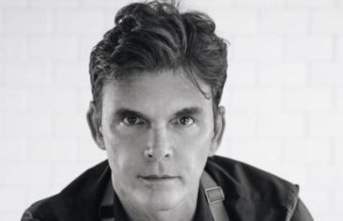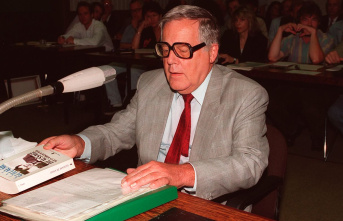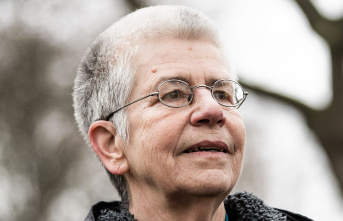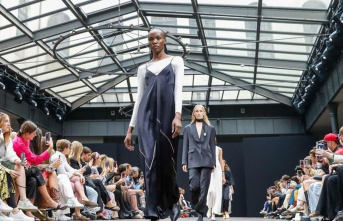A few canned goods, a flashlight with enough batteries and one or two more bottles of water in the household: stocking up is certainly not a bad idea - it could always be something. The Federal Office for Civil Protection and Disaster Assistance also advises not to leave the pantry empty.
However, this has little to do with the so-called "prepping". The phenomenon describes a movement of people who are actively preparing for the collapse of civilization and are therefore creating large amounts of food and sometimes even shelters in order to survive an "apocalypse".
But not only some average Otto consumers fear the end of the world and are therefore preparing accordingly. Prepping has now reached the richest of the rich. Of course, putting a few cans of ravioli and a can of water in the basement is not enough for them. Tech billionaires and other extremely wealthy people sometimes spend insane effort and correspondingly absurdly high sums to have an exit plan should the system actually collapse.
Douglas Rushkoff is an American author, journalist and lecturer. He has been dealing with the effects and dangers of digitization for years and was a co-founder of the "cyberpunk" movement. He sees himself as a "humanist and Marxist media theorist".
Rushkoff has devoted an entire book to prepping the super-rich. In "Survival of the Richest" he has collected some seemingly crazy examples of how the richest people in the world prepare for "Day X".
Rushkoff paints a dark picture of the super-rich. The author was invited to a "high-end resort" in 2017. But instead of giving a lecture on digitization, which he was prepared for, he sat with five men from the tech and investment industry - at least two of whom were billionaires. You had questions for Rushkoff. Asking how to survive an impending apocalypse they just called the "Event". What exactly would trigger a collapse of civilization was beside the point. Whether it was the effects of climate change, a deadly global pandemic, a world war or a nuclear accident, the men wanted to be prepared for anything.
It was noticeable that the super-rich did not feel like the "Masters of the Universe", they were afraid of being caught in a social collapse and being held responsible for the development, according to Rushkoff.
They asked whether it made more sense to build a bunker in New Zealand or Alaska, whether their security guards could keep a mob away from the bunker, or whether a robot army wouldn't make more sense? One of those present has already hired a dozen former Navy SEALs to protect him.
Rushkoff's objection that it makes more sense to invest large sums in solidarity projects that strengthen social cohesion and with the help of which one can better solve long-term problems as a collective, only earned a roll of the eye.
Rather, the men were interested in how long you have to endure it in a bunker and how a self-sufficient supply of water and air is possible if the environment is contaminated or polluted. Typical questions for preppers.
For Rushkoff, however, the men's intention to prepare for "Day X" was more frightening, as he writes:
"Liking Tesla founder Elon Musk who wants to colonize Mars, Palantir's Peter Thiel who wants to reverse the aging process, or artificial intelligence developers Sam Altman and Ray Kurzweil who want to upload their thoughts to supercomputers, they prepared for a digital future that has less to do with making the world a better place and more to do with transcending humanity altogether."
Their extreme wealth and privilege made them obsessed with protecting themselves from very real threats like climate change or a global pandemic. "For them, the future of technology is all about one thing: escaping the rest of us," Rushkoff continues in his book.
That is exactly the difference to "normal" people who stock up or build shelters themselves. According to Rushkoff, the richest of the rich think much more long-term. They are concerned with being able to live autonomously for an unlimited period of time after the collapse of the social order.
Against this background, their visions and projects of the past few years suddenly seemed different, says Rushkoff. For example, Elon Musk's plan to found a colony on Mars seemed innovative and impressive at first glance - in the event of an apocalypse, such a colony would be an emergency exit to continue living - the billionaires would win. Or?
Rushkoff sees it differently. The super rich would have made unimaginable amounts of money. However, that would not mean that they had won the "economic game", according to the author. They are much more victims of his "perverse and limited rules." Her "Silicon Valley mindset" led her to think she could always win, while also overriding the laws of physics, economics, and morality.
But instead of actively doing something against a possible decline of civilization, the exit strategies of the super-rich are ultimately only a self-assurance that one can really survive the apocalypse and thus put oneself ahead of all other people.
Sources: Douglas Rushkoff: "Survival of the Richest" (excerpt from The Guardian), Popmatters.com, Federal Office of Civil Protection and Disaster Assistance












